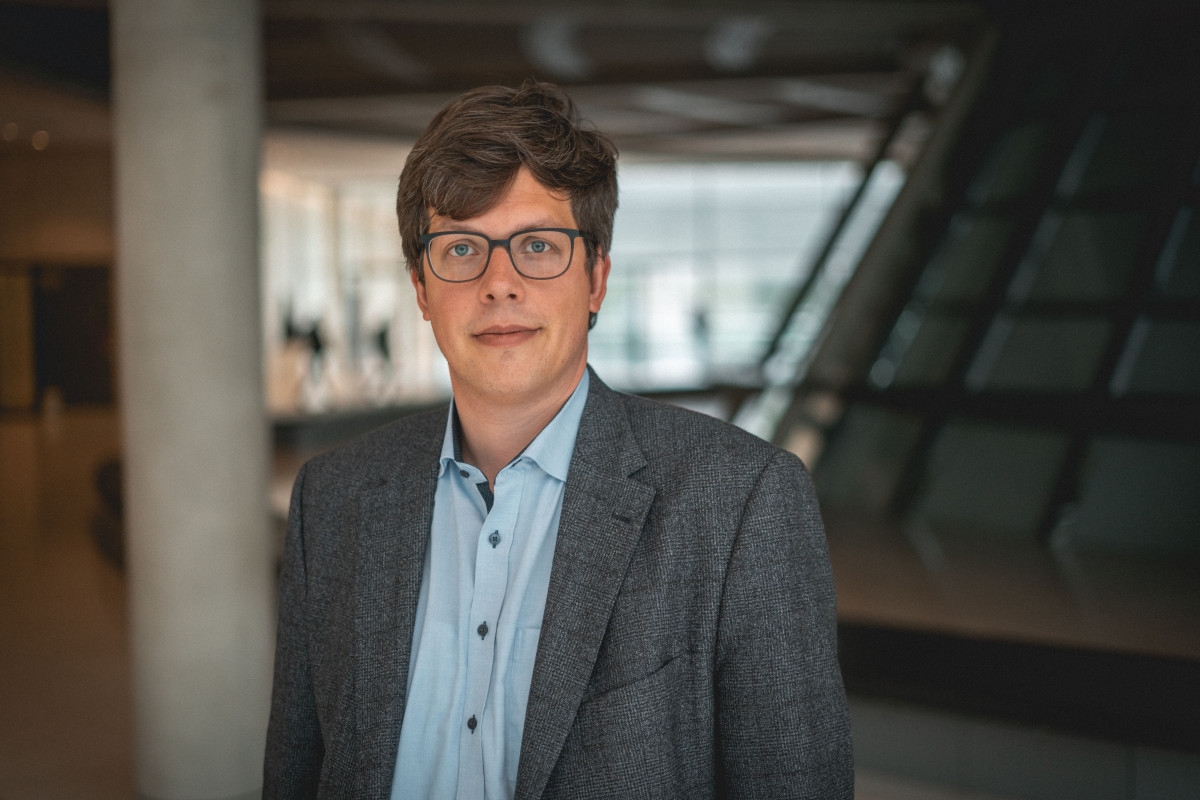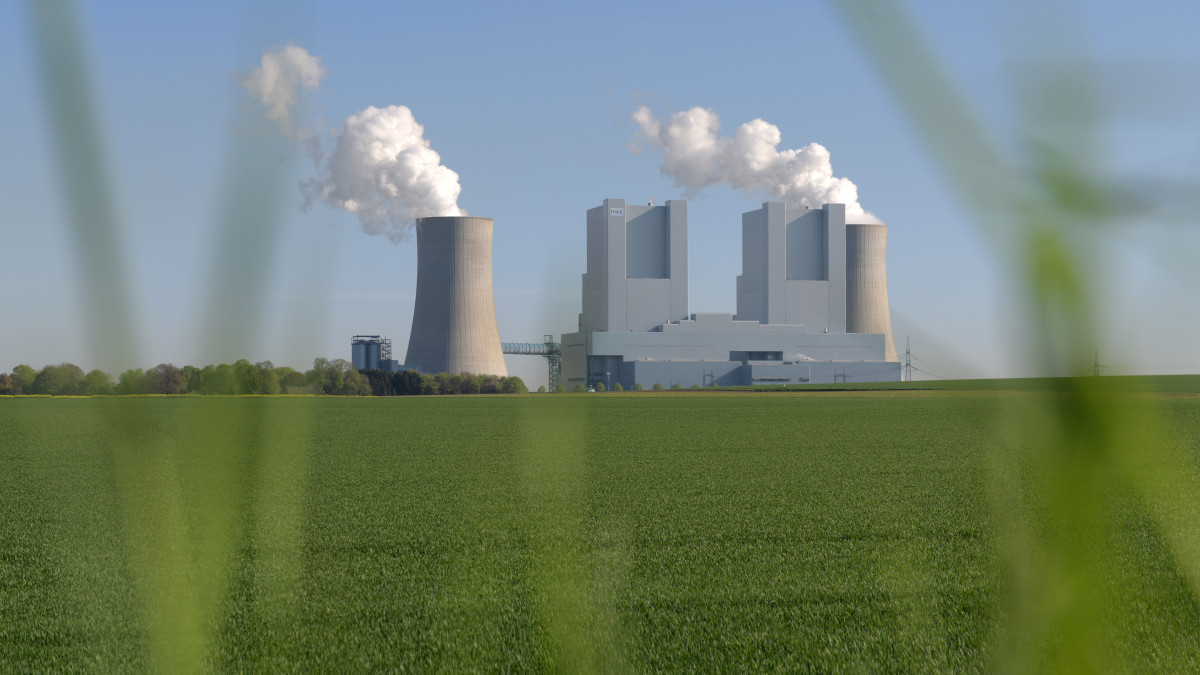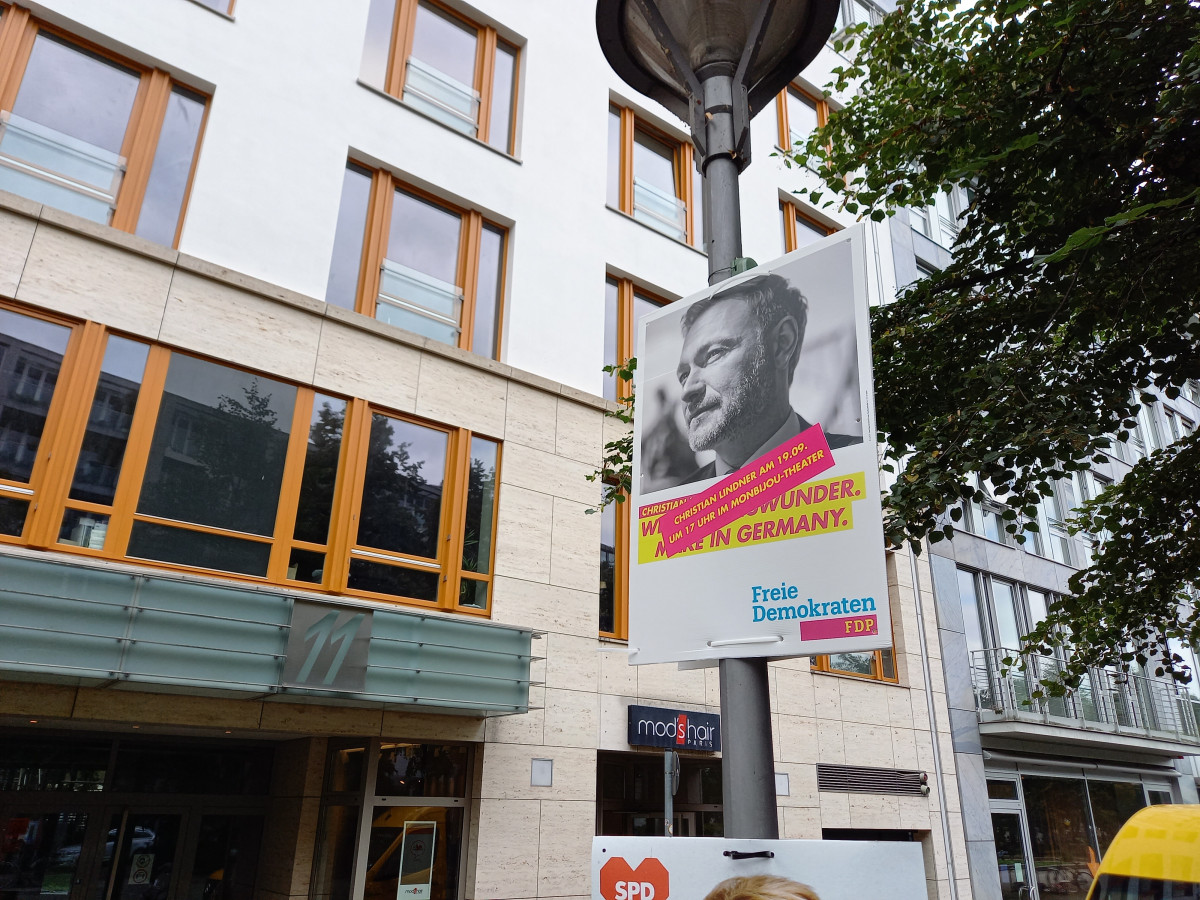'We need climate policy that is as cost-efficient as possible' - FDP's Lukas Köhler
Climate and energy policy play a much bigger role in this election campaign than during the last election in 2017. A look at the FDP election program also confirms this. Why?

Nearly everyone you talk to nowadays - whether they are a member of industry, the public sector or civil society - has heard the call that change is needed desperately. Everyone agrees that we have to change our systems. We hear the call from science, for example the new IPCC report, as well as the pressure from the streets from Fridays for Future. The topic has also become central to the election campaign because of the recent extreme weather events, such as the flood catastrophe in western Europe and the forest fires and heatwaves in the south of Europe. It’s quite clear we have to do a lot. But it is not only a climate election. There are other important topics, such as social justice and the coronavirus, that play a large role as well.
Earlier this year, the government tightened its Climate Action Law and pulled forward to 2045 the target for climate neutrality. Yet the FDP still calls for climate neutrality by 2050. Why does your party disagree with the new targets set by the government?
The FDP does not propose a national target. We need climate neutrality by 2050 in all of Europe. For us, the major policy instrument needed to tackle climate change is an emissions trading system (ETS) with a hard CO2-limit. That is best implemented on a European level. The EU Commission is not so fast when it comes to expanding the ETS to all sectors and all greenhouse gases, but we still think the European level is the best way to go. But we want to evaluate the 2050 target when the full 6th IPCC Assessment Report is published in 2022.
‘Nie gab es mehr zu tun’ (‘There has never been more to do’) is one of the slogans of the FDP campaign. What will have the highest priority in the area of climate and energy transition if the FDP becomes part of the next federal government?
The highest priority is to set up a system in which all climate and energy policies are linked together. Instead of having single-issue policies, we need an overarching plan. A CO2-limit should be the backbone of every other climate policy; anything beyond this limit would be prohibited. The CO2-budget that is left would be divided through an emissions trading system that covers all sectors and all geographic areas in Europe. It is of major importance for the FDP to have climate policy that is as cost-efficient as possible.

There is a debate about pulling forward the current end date of coal-fired power production of 2038 to 2030 or even earlier. The FDP does not propose an end date for the fossil fuel, how do you envision the coal exit?
We don’t see the need for a regulated end-date because we already see in the energy market that coal will be phased out, simply because of the current CO2 price of 62 euros in the emissions trading system. The problem with the coal phase-out is that our current policies prevent us from having enough storage capacity, which means we need coal for our energy supply security. The FDP is completely okay with a much earlier phase-out, and we actually believe that coal will be phased out well before 2030, as long as the parameters in the energy sector are designed in a way that makes it possible to also ensure supply security.
If there was an earlier coal phase-out by way of market regulation due to a high CO2 price, how do you create a just transition to ensure people who work in the coal industry are not left behind?
This is the only part where we would need state regulation. Within the current coal phase-out package, there is a just transition fund. The government in North-Rhine Westphalia [a CDU-SPD-FDP coalition] has already started investing in infrastructure and jobs in light of a just transition. One of the policies needed is the establishment of free trade zones, and the second one is that we will have to build up gas capacity in order to have energy supply security. Natural gas, but in the future also hydrogen and synthetic gas, will have to be part of the mix. So why not use the already existing infrastructure in the coal regions to build up capacity there. We already have the electricity wires and the knowledge in the region, as well as the people who can build and run a power plant.
There is no socially just climate politics. Climate politics always means change, and a change of behaviour always means that costs are increasing.
This means government regulation is needed to help people in the region. But the coal phase-out itself is regulated through the market and companies will not be paid compensation, which can get very expensive and would be better invested in other things.
You mentioned using gas as a bridge technology to ensure energy supply security. What is your stance on the Nord Stream 2 natural gas pipeline, the construction of which has recently been finalised?
We criticize the government for not acting in accordance with the rest of Europe, which was opposed to the pipeline. But now that it’s there we would not leave it stranded and we are okay with it being used. However, before operation we want to have a moratorium to find a way forward to working with Russia. This would include talks about human rights and how political opposition, such as Aleksei Navalny, is being treated in Russia. Human rights count, and the way we work together with our international partners counts as well.
For future projects like this, our position is that we are not alone in Europe and we have to work together with the other European partners. International energy politics is linked closely to foreign affairs as well as international security affairs. Projects like these cannot only be viewed as energy projects only.
At the beginning of this year Germany introduced a CO2 price for transport and heating, which is currently at 25 euros per tonne and set to rise in the coming years. The CO2 price creates an additional burden for tenants and commuters. Are you worried that a higher and more extensive CO2 price will bring about public protests, such as the Yellow Vest movement we have seen in France?
There is no socially just climate politics. Climate politics always means change, and a change of behaviour always means that costs are increasing. Therefore you have to combine climate policies with other policies to ensure a socially just transition. That is of major importance to us as well. First, we want to bring down energy prices by reducing taxes and levies. In Germany, taxes and levies currently make up roughly 75 percent of electricity costs. That is too high. The second thing is, we want to give back the money that the government makes through the emissions trading system to the citizens through a so-called climate dividend. This means that at the end of the year everyone gets a cheque with the money that is left over from the emissions trading system. Every person in Germany, no matter a child or elderly, rich or poor, gets the same amount of money.
Is the climate dividend enough to compensate for the rising costs of, for example, heating a home or fueling a car?
The combination of reducing taxes on the one side and giving back money on the other should be enough. Of course, people who have a very high carbon footprint - people who fly a lot or have big houses and use a lot of heat – will be paying a bit more. People who have lower footprints will be getting more money back. It’s very socially just because usually people with lower incomes have lower carbon footprints, because they have smaller houses and don’t drive big SUVs but use public transport more often.
In its election programme, the FDP does not propose an end-date for combustion engine cars or a ban on domestic flights. Looking ahead to the target year for climate neutrality 2050: Do you see a transportation system that works the same as it does today, just with different, CO2-neutral types of propulsion, or are you aiming for a different form of mobility? What does that look like?
It’s hard to say what will happen in 30 years. But as for how we envision the future of transport: there will still be cars with combustion engines, just because they are so long-lived - they can be used for twenty-five years – and they will be sold in the future as well. Those combustion engines, especially in freight transport, will be running on different fuels including synthetic fuels. But we will also see other developments in mobility, such as autonomous driving and the share-economy. Not so much in the cities, because the trains and metro systems are so efficient. But in rural areas autonomous driving will play a large role. We will also see a lot of electric cars, in the cities especially, because they are less loud and more efficient. In short, we will still have individual modes of transport, but we will also see very strong public transport and a mix of engines and fuels.
One of the FDP’s main pillars is the digitalization and modernization of Germany. How can digitalization help to accelerate the transition to clean energy?
There are many ways to use digitalization in the energy transition. One important use is creating a smart electricity grid. It can have many advantages, including the introduction of real-time energy prices. Smart energy meters in homes, which can regulate temperatures, can also save a lot of emissions and should be installed more widely. We also need smart farming and precision farming, which can be done if we have strong enough internet in rural areas too.
If Germany wants to reach climate-neutrality by 2050, non-avoidable greenhouse gases – for example in the heavy industry and farming sectors – must be offset by negative emissions. The use of Carbon Capture and Storage (CCS) is currently still banned in Germany. What steps does the next federal government need to take to ensure future CO2 removal?
At the moment CCS is banned because of a, in my opinion, very problematic debate about the dangers of the technology. We have to change the law that prohibits the use of CCS. My proposal is that we introduce a new law that looks at not just capturing CO2 from the air and storing it, but at using it as well. CO2 can be used, for example, to make synthetic fuels or in the chemical industry. We propose a new law, called the Carbon Circular Economy Law that focuses on making CO2 part of a circular economic process. This law should focus on the capture and storage of CO2, as well as the transportation and usage of it – both nationally and internationally.
Farmers in Germany are quite upset about how quickly policies are changing. We need clear planning within the agricultural system, also when it comes to climate regulation.
Does the FDP propose CCS technology to be used only for the unavoidable emissions or would it be implemented more widely?
When you look at industry and other sectors, CCS would only be used for unavoidable emissions. But the IPCC pretty strictly states that we not only have to reach net-negative but net-positive emissions. This means we have to remove more CO2 from the atmosphere than we emit if we want to stabilize the global temperature at 1.5-degrees after 2050. We don’t see that negative emissions are only there for unavoidable emissions, but also for emissions that are already in the atmosphere.
Negative emissions can also be achieved through natural sinks, such as forests and wetlands – a process in which the agricultural sector can play a big role. However, the federal government's latest agricultural package of new environmental measures for farmers has led to the largest farmer protests of the post-war era. How can farmers be better integrated into climate protection policies in the future?
For once it would be great to have a strict farming policy line, which we don’t have at the moment. For example, Germany has changed regulations about the use of fertilizers in 2017 and then again in 2019, before the effects of the first regulation could even be seen. Farmers in Germany are quite upset about how quickly policies are changing. We need clear planning within the agricultural system, also when it comes to climate regulation. For the FDP, a cornerstone of that is the CO2 price. We want to include agriculture into the emissions trading system, both in terms of positive and negative emissions. Farmers can, for example, renature moors, which can act as a natural sink, but this means they cannot make any profit off that land. Therefore, we need some forms of compensation for farmers.
As the planet heats up, extreme weather events including floods – such as the one Germany experienced this summer – heatwaves and droughts will become more frequent and more intense. How should Germany prepare for the impacts of climate change? What climate adaptation measures are needed?
We have a four-part strategy for this. First, we have to invest in digitalized data coverage, so that all data from weather events and agricultural data is stored in one place. Then it becomes much easier to forecast how damages could occur. Second, we need to improve the emergency warning system. We want to build up the siren-system in Germany again, which has largely been removed. Third, we have to help farmers and people working in the forest industry to use new seeds and new kinds of trees that will help build resilient forests and resilient agriculture. We also have to look into using technologies like CRISPR Cas9 to increase the resilience of crops. Fourth, we want to set up a programme to help cities adapt to climate change, for example by greening facades of buildings, which helps to regulate temperatures. And flood prevention measures should become an essential part of city planning.


!["We want to have a moratorium [on the Nord Stream 2 pipeline] to find a way forward to working with Russia. This would include talks about human rights and how political opposition, such as Aleksei Navalny, is being treated in Russia," Lukas Köhler tells Clean Energy Wire. Photo: Nord Stream 2.](https://www.cleanenergywire.org/sites/default/files/styles/paragraph_text_image/public/paragraphs/images/nordstream2-axelschmidt-nsp2-connecting-pipe-sections-above-water-201908-small-rgb.jpg?itok=giFzBjss)
